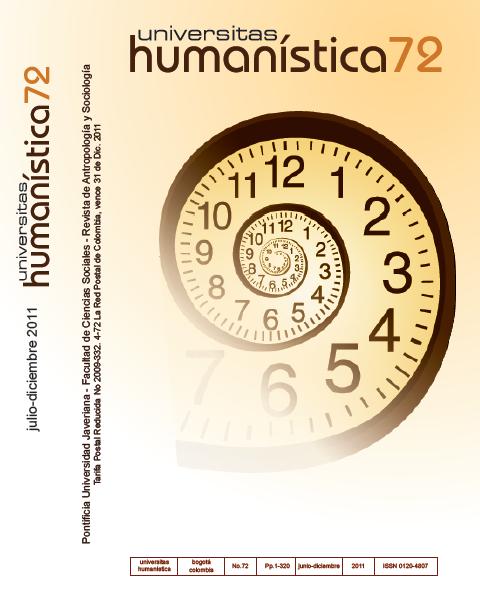Resumen
Este artículo examina las transformaciones en la acción colectiva del actor-red Proceso de Comunidades Negras (pcn), desarrolladas como consecuencia de la agudización del conflicto armado en la región pacífica —específicamente, sobre los territorios colectivos del municipio de Buenaventura y Suárez en el suroccidente colombiano— en los últimos 10 años. La recolección de información se hizo con entrevistas semiestructuradas, registros de observación, análisis documental de audio y texto sobre denuncias y comunicados de las organizaciones, y la elaboración de datos agregados sobre desplazamiento y hechos de conflicto en la región. Los resultados encontrados demuestran un significativo recrudecimiento del conflicto en el período, frente a lo cual las coaliciones del pcn con actores locales y globales han logrado neutralizar y visibilizar la acción de los actores armados sobre las poblaciones, así como reorientar la acción colectiva, innovando en los repertorios de acción y fijando nuevas metas para este actor-red en la región. 
La revista Universitas Humanística se encuentra registrada bajo la licencia Creative Commons Reconocimiento 4.0 Internacional. Por lo tanto, esta obra se puede reproducir, distribuir y comunicar públicamente en formato digital, siempre que se reconozca el nombre de los autores y a la Pontificia Universidad Javeriana. Se permite citar, adaptar, transformar, autoarchivar, republicar y crear a partir del material, para cualquier finalidad (incluso comercial), siempre que se reconozca adecuadamente la autoría, se proporcione un enlace a la obra original y se indique si se han realizado cambios. La Pontificia Universidad Javeriana no retiene los derechos sobre las obras publicadas y los contenidos son responsabilidad exclusiva de los autores, quienes conservan sus derechos morales, intelectuales, de privacidad y publicidad.
El aval sobre la intervención de la obra (revisión, corrección de estilo, traducción, diagramación) y su posterior divulgación se otorga mediante una licencia de uso y no a través de una cesión de derechos, lo que representa que la revista y la Pontificia Universidad Javeriana se eximen de cualquier responsabilidad que se pueda derivar de una mala práctica ética por parte de los autores. En consecuencia de la protección brindada por la licencia de uso, la revista no se encuentra en la obligación de publicar retractaciones o modificar la información ya publicada, a no ser que la errata surja del proceso de gestión editorial. La publicación de contenidos en esta revista no representa regalías para los contribuyentes.


